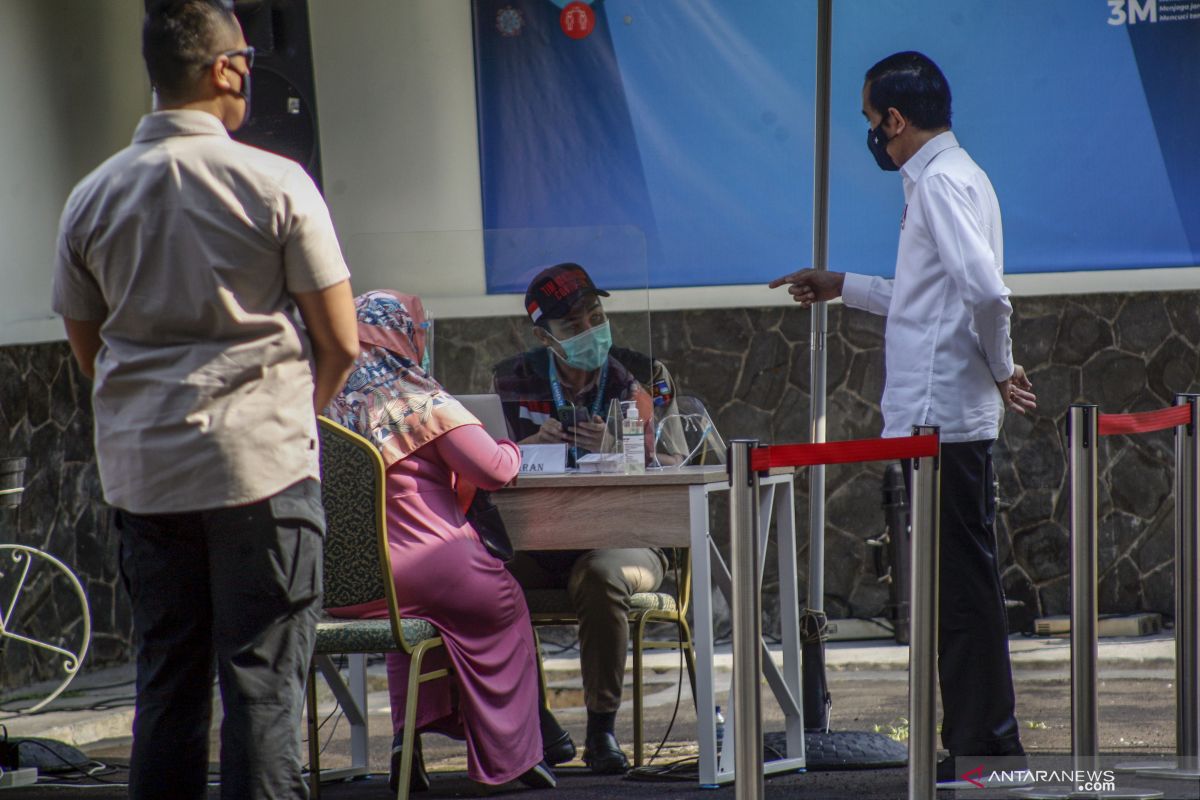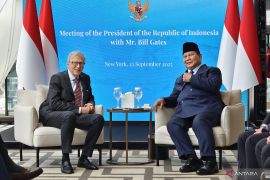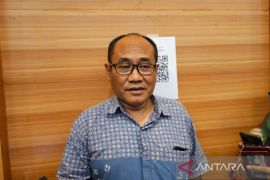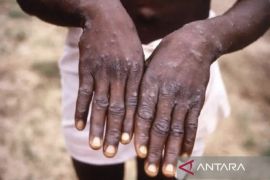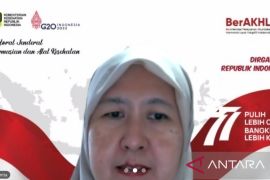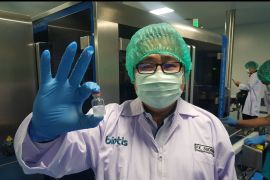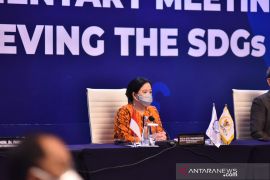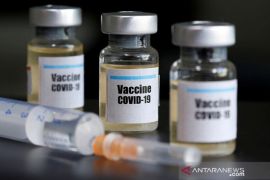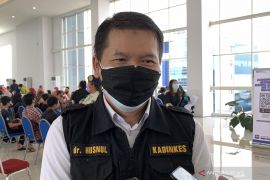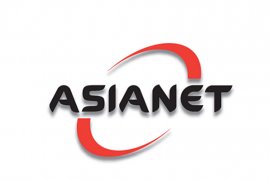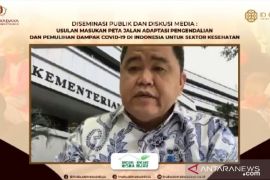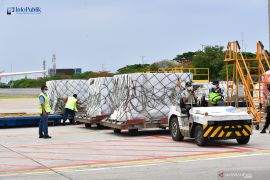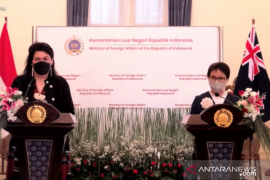The world will not be healthy unless all countries are healthy. Vaccines are one of the ammunitionJakarta (ANTARA) - The significance of ensuring equitable access to COVID-19 vaccines was accentuated by several leaders participating in the recent APEC, ASEAN, and G20 Summits respectively chaired by Malaysia, Vietnam, and Saudi Arabia, earlier in November 2020.
President Joko Widodo (Jokowi), who virtually attended the three summits, joined the unified chorus to call for fair access and distribution of the vaccines against the coronavirus disease (COVID-19) that has, so far, claimed almost 1.5 million lives worldwide.
Addressing the 11th ASEAN-UN Summit via teleconference from the Bogor Presidential Palace, West Java, on Nov 15, Jokowi called attention to the role of the United Nations (UN) in facilitating vaccine access for all.
The Indonesian head of state noted that in the short term, the UN must play a role in fulfilling the requirement of access to medicines and vaccines for all, while in the long term, the UN and ASEAN could collaborate to ensure preparedness in tackling possible pandemic in future.
The virtual ASEAN-UN Summit was co-chaired by Vietnamese Prime Minister Nguyen Xuan Phuc, as the ASEAN chairman, in Hanoi, and UN Secretary General Antonio Guterres, as part of a series of activities organized during the 37th ASEAN Summit and related summits held on Nov 12-15, 2020.
Related news: Jokowi emphesizes UN's role in facilitating vaccine access for all
A week later, while delivering a speech at the 2020 G20 Summit held virtually, President Jokowi reiterated the call for equitable access to COVID-19 vaccines for every country.
"First, there is a need for funding for health recovery. The world will not be healthy unless all countries are healthy. Vaccines are one of the ammunition," Jokowi noted during the first session of the G20 summit themed "Overcoming Pandemics and Restoring Economic Growth and Jobs."
Hence, Jokowi stressed that COVID-19 vaccines should be made available to all nations without exception.
Indonesia has been making preparations for vaccination against COVID-19 that is expected to commence in the third week of December 2020.
The country is trying every possible course of action to ensure that it acquires vaccines through bilateral and multilateral endeavors.
Furthermore, Indonesia is developing its indigenous vaccine called the Red and White vaccine that is expected to be ready in late 2021.
Related news: Indonesia's COVID-19 vaccine expected ready for production in 2021-end
Jokowi has made assurance that the government will only administer COVID-19 vaccines listed under the World Health Organization (WHO) for immunization against COVID-19.
"All vaccines must be listed under the WHO. This is mandatory, and it must be listed under the WHO," Jokowi affirmed.
The government has inked an agreement to procure 143 million doses of the vaccine concentrate from Chinese pharmaceutical firms, with 65 million doses from Sinovac, 15 million doses from Sinopharm, and 20 million doses from CanSino, among others. State-run vaccine manufacturer Bio Farma will produce the vaccine.
Some 100 million doses of the vaccine from British multinational pharmaceutical company AstraZeneca will arrive in Indonesia in the second quarter of 2021.
According to the WHO data, at least 154 COVID-19 vaccines are currently being explored in lab experiments, and 10 vaccines are undergoing large international trials to assess their impact on COVID-19.
At a recent news conference in New York, UN Chief Guterres stated that the recent breakthroughs on COVID-19 vaccines offer a ray of hope, but it has to be ensured that it would reach one and all.
“That means ensuring that vaccines are treated as a global public good — accessible and affordable to everyone, everywhere. A people's vaccine. This is not a ‘do-good' exercise. It is the only way to stop the pandemic dead in its tracks,” he emphasized.
Affirming that "solidarity is indeed survival,” Guterres expressed belief that the Access to COVID-19 Tools (ACT) Accelerator and its COVAX Facility are the vehicles to get the nations there.
The ACT Accelerator is a ground-breaking global collaboration to expedite the development, production, and equitable access to COVID-19 tests, treatments, and vaccines.
COVAX, the abbreviation for COVID-19 Vaccines Global Access, is the vaccine pillar of ACT Accelerator.
Being co-led by Gavi, the Coalition for Epidemic Preparedness Innovations (CEPI) and WHO, COVAXnis aims to accelerate the development and manufacturing of COVID-19 vaccines and to guarantee fair and equitable access for every country in the world, with focus on the most vulnerable.
At the WHO’s regular news briefing in Geneva, recently, Director-General Tedros Adhanom Ghebreyesus commended the recent development of the vaccines, including the Pfizer-BioNTech inoculation being considered by the U.S. Food and Drug Administration and European regulators.
“No vaccines in history have been developed as rapidly as these. The scientific community has set a new standard for vaccine development,” he stated.
However, Ghebreyesus reminded that the international community must also set a new standard for access to these new vaccines and ensure they are available to the poorest nations in the world.
“The urgency with which COVID-19 vaccines have been developed must be matched by the same urgency to distribute them fairly,” he reiterated.
Ghebreyesus noted that 187 nations are currently participating in COVAX, but $4.3 billion was urgently required to support the mass procurement & delivery of COVID-19 vaccines, tests, and treatments, and another $23.8 billion will be required next year.
The director-general stated that the programs are a good investment for the world’s strongest economies. He cited an International Monetary Fund Report that said if medical solutions to the pandemic are quickly made widely available, it could increase income globally by $9 trillion in the next five years.
Ghebreyesus remarked that contributing to the effort is not charity but it is the fastest way to end the pandemic and drive global economic recovery.
Introduction of a vaccine will not only prevent more deaths and bring this virus under control, but it will also concurrently prevent global economic losses of US$375 billion due to COVID-19 every month, according to the WHO.
Global equitable access to a vaccine, especially protecting healthcare workers and those most-at-risk is the sole way to mitigate the public health consequences and economic impact of the pandemic.
Related news: Red and White vaccine may be distributed in Q4 2021
Related news: Cold chain preparation for COVID-19 vaccines 97% complete
Editor: Sri Haryati
Copyright © ANTARA 2020
